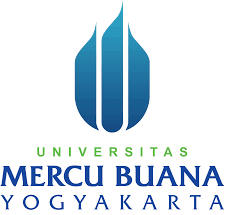Pengaruh Populasi Penduduk, FDI dan Control of Corruption terhadap Emisi CO2 di 9 Negara ASEAN
DOI:
https://doi.org/10.55927/mudima.v2i10.1462Keywords:
Emisi karbon dioksida (CO2), Penduduk, FDI, KorupsiAbstract
Penelitian ini bertujuan untuk mengkaji dampak populasi penduduk, foreign direct investment (FDI) dan control of corruption terhadap emisi karbon dioksida. Sampel penelitian mencakup sembilan negara anggota ASEAN (Indonesia, Malaysia, Singapura, Thailand, Filipina, Brunei Darussalam, Vietnam, Myanmar dan Kamboja) periode tahun 2011 hingga 2020. Metode regresi panel menggunakan model Fixed Effect digunakan untuk menyelidiki dampak populasi penduduk, foreign direct investment (FDI) dan control of corruption terhadap emisi karbon dioksida. Hasil penelitian menunjukkan, variabel populasi penduduk, foreign direct investment (FDI) masing-masing mempunyai pengaruh positif dan signifikan terhadap emisi karbon dioksida, sedangkan variabel control of corruption berpengaruh negatif dan signifikan terhadap emisi karbon dioksida.
References
Akhbari, R., & Nejati, M. (2019). The effect of corruption on carbon emissions in developed and developing countries: empirical investigation of a claim. Heliyon, Vol. 5, h 1-9.
Arminen, H., & Menegaki, A. N. (2019). Corruption, climate and the energy-environment-growth nexus. Energy Economics, Vol. 80, h 621-634.
Cole, M. (2007). Corruption, income and the environment: An empirical analysis. Ecological Economics, Vol. 62, h 637-647.
Dincer, O. C., & Fredriksson, P. G. (2018). Corruption and Environmental Regulatory Policy in the United States: Does Trust Matter? Resource and Energy Economics. doi:doi:10.1016/j.reseneeco.2018.10.001
Hassaballa, H. (2015). The Effect of Corruption on Carbon Dioxide Emissions. European Journal of Sustainable Development, Vol. 4, No. 2, h 301-312 .
Hossain, S. (2012). An Econometric Analysis for CO2 Emissions, Energy Consumption, Economic Growth, Foreign Trade and Urbanization of Japan. Low Carbon Economy, Vol. 3 No. 3A, h 92-105.
Karakaya, E. (2016). Paris Climate Agreement: An Evaluation Of Its Content And Impact On Turkish Economiy. Journal of Institute of Social Sciences, Vol.3, No.1, h 1-12.
Khusna, V., & Kusumawardani , D. (2021). Decomposition of Carbon Dioxide (CO2) Emissions in ASEAN Based on Kaya Identity. Indonesian Journal of Energy Vol. 4 No. 2, 101 – 114.
Kusumawardani, D. (2009). Populasi pendudukdari Penggunaan Energi di Indonesia: Perbandingan antar sektor. Jurnal Ekonomi dan Bisnis, Vol. 8, No.3, 176-187.
Lawal, I. M., & Abubakar, M. (2019). Impact of population growth on Carbon Dioxide (CO2) emission: empirical evidence fromNigeria. Journal of Financing and Regional Development Perspectives, Vol. 6, No. 6, h 701-708.
Lee, H. S., Lee, S. Y., Har, W. M., & Low, C. W. (2020). Energy Use and Corruption Mitigation: Implications for the Environmental. IOP Conf. Series: Earth and Environmental Science, h 1-9. doi:doi:10.1088/1755-1315/498/1/012063
Lorente, D. B., Leitão, N. C., & Bekun, F. V. (2021). Fresh Validation of the Low Carbon Development Hypothesis under the EKC Scheme in Portugal, Italy, Greece and Spain. Energies, Vol. 14, No. 1, h 1-17.
Mantra, I. B. (2003). Demografi Umum. Yogyakarta: Pustaka pelajar.
Masron, T. A., & Subramaniam, Y. (2018). The environmental Kuznets curve in the presence of corruption in developing countries. Environmental Science and Pollution Research, Vol.25. No. 13. doi:doi:10.1007/s11356-018-1473-9
Mehdi, N., & Taleghani, F. (2022). Pollution halo or pollution haven? A CGE appraisal for Iran. Journal of Cleaner Production, Vol. 344. doi:https://doi.org/10.1016/j.jclepro.2022.131092
Pazienza, P. (2015). The relationship between CO2 and Foreign Direct Investment in the agriculture and fishing sector of OECD countries: Evidence and policy considerations. Intellectual Economics, Vol 8, No. 1, h 55-66.
Pearce, D., & Turner, R. (1991). Economics of natural resources and the environment. Ecological Economics, Vol.3, No.3, h 263-265.
Perwithosuci, W., Mafruhah, I., & Gravitiani, E. (2020). THE EFFECT OF POPULATION, GDP, OIL CONSUMPTION, AND FDI ON CO2 EMISSIONS IN ASEAN 5 DEVELOPING COUNTRIES. International Journal of Economics, Business and Management Research, Vol. 4, No. 06, h 211-219.
Ren, S., Yuan, B., & Chen, X. (2014). International trade, FDI (foreign direct investment) and embodied CO2 emissions: A case study of Chinas industrial sectors. China Economic Review, Vol. 28, h 123-134.
Ren, S., Yuan, B., & Chen, X. (2014). International trade, FDI (foreign direct investment) and embodied CO2 emissions: A case study of Chinas industrial sectors. China Economic Review, Vol.28, h 123-134.
Ridzuan, A. R., Sapuan, N. M., Rahman, N. H., Borhan, H., & Usman, A. (2019). The Impact of Corruption on Environmental Quality in the Developing Countries of ASEAN–3: The Application of the Bound Test. nternational Journal of Energy Economics and Policy, Vol. 9, No. 6, h 469-478. doi: https://doi.org/10.32479/ijeep.8135
Rofiuddin, M., Aisyah, S., Pratiwi, D. N., Annisa, A. A., Puspita, R. E., & Nabila, R. (2019). Does Economic Growth Reduce Pollution? Empirical Evidence from Low Income Countries. International Conference on Energy, Environment, Epidemiology and Information System, Vol.125. doi:https://doi.org/10.1051/e3sconf/201912506002.
Santi, R., & Sasana, H. (2020). Analisis Pengaruh Pertumbuhan Ekonomi, Jumlah Penduduk, Foreign Direct Investment (FDI), Energy Use/Consumption Dan Krisis Ekonomi Terhadap Kualitas Lingkungan Ditinjau Dari Tingkat Carbon Footprint Di ASEAN. Diponegoro Journal Of Economic Vol. 10 No. 2, h 1-11.
Suparmoko, M. (1997). Ekonomi Sumber Daya Alam dan Lingkungan. Yogyakarta: BPFE.
Tang, C. F., & Tan, B. W. (2015). The impact of energy consumption, income and foreign direct investment on carbon dioxide emissions in Vietnam. Energy, Vol.79, h 447-454.
Tang, E. (2017). Pengaruh Penanaman Modal Asing, Pendapatan Domestik Bruto, Konsumsi Engergi, Konsumsi Listrik Dan Konsumsi Daging Terhadap Kualitas Lingkungan Pada 41 Negara Di Dunia dan 17 Negara Di Asia Periode 1999-2013. Jurnal Ilmiah Mahasiswa Universitas Surabaya Vol.6 No.2, h 1896-1914.
Welsch, H. (2004). Corruption, growth and the environment. Environment and DevelopmentEconomics, Vol. 9 No. 5.
Wenen, Z., & Yin-Bin, C. (2020). Do country risks influence carbon dioxide emissions? A non-linear perspective. Energy. doi:doi:10.1016/j.energy.2020.118048
Zhang, C., & Zhou, X. (2016). Does foreign direct investment lead to lower CO2 emissions? Evidence from a regional analysis in China. Renewable and Sustainable Energy Review, Vol.58, h 943-951.
Downloads
Published
How to Cite
Issue
Section
License
Copyright (c) 2022 Yusril Izha Mahendra, Marselina, Heru Wahyudi, Ukhti Ciptawati

This work is licensed under a Creative Commons Attribution 4.0 International License.



































